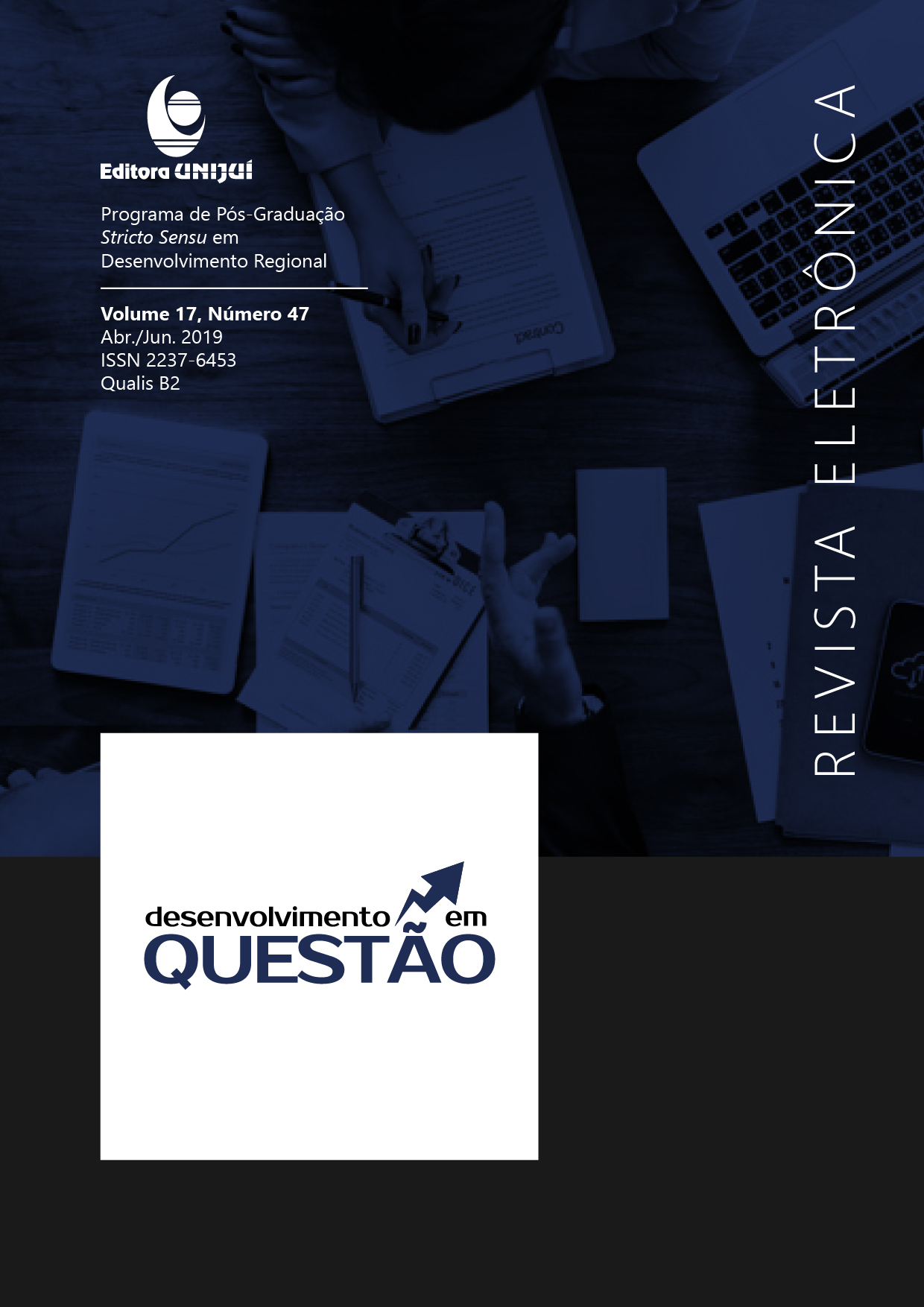Dinâmica Econômica Nordestina e Emprego Formal Industrial: o Caso dos Estados da Bahia e Ceará – 2003/2013
DOI :
https://doi.org/10.21527/2237-6453.2019.47.248-264Mots-clés :
Emprego industrial, Bahia, Ceará, Dinâmica econômicaRésumé
O presente trabalho tem como objetivo estudar a dinâmica econômica nordestina tendo como fundamento a evolução do emprego industrial formal nos estados do Ceará e da Bahia, durante o período de 2003 e 2013. A definição destes estados como estudo de caso se justifica em um conjunto de aspectos como: i) sumarizam o perfil estrutural do conjunto das economias regionais; ii) trata-se da economia nordestina mais dinâmica, a Bahia, e outra que assume padrão intermediário, o Ceará e; iii) como decorrência, a Bahia possui a economia industrial mais integrada à nacional, e por isso bem mais diversificada, ao passo que o Ceará, embora tenha passado por transformações consideráveis rumo à integração e diversificação, ainda apresenta uma estrutura produtiva pautada prioritariamente em bens tradicionais. Foram utilizados dados secundários da Relação Anual de Informações Sociais- RAIS do Ministério do Trabalho e Emprego- MTE referentes à caracterização da atividade industrial nestas duas economias bem como o perfil dos seus trabalhadores. Observou-se que a atividade industrial baiana apresentou maior diversificação nos seus setores, em que, possui empreendimentos com maior número de empregados. No caso cearense, apresenta um modelo mais pautado em setores tradicionais como têxtil, alimentos e bebidas, além da forte participação no ramo de calçados. Isto ocorre, apesar da diversificação mais recente avançar para ramos como o caso da ampliação da Indústria de Material de Transporte. Ainda assim, sua estrutura industrial e o perfil do emprego formal é predominantemente pautado em setores mais tradicionais.
Téléchargements
Publié-e
Comment citer
Numéro
Rubrique
Licence
Ao publicar na Revista Desenvolvimento em Questão, os autores concordam com os seguintes termos:
Os trabalhos seguem a licença Creative Commons Atribuição 4.0 Internacional (CC BY 4.0), que permite:
Compartilhar — copiar e redistribuir o material em qualquer meio ou formato;
Adaptar — remixar, transformar e criar a partir do material para qualquer fim, inclusive comercial.
Essas permissões são irrevogáveis, desde que respeitados os seguintes termos:
Atribuição — Atribuição — os autores devem ser devidamente creditados, com link para a licença e indicação de eventuais alterações realizadas.
Sem restrições adicionais — não podem ser aplicadas condições legais ou tecnológicas que restrinjam o uso permitido pela licença.
Avisos:
A licença não se aplica a elementos em domínio público ou cobertos por exceções legais.
A licença não garante todos os direitos necessários para usos específicos (ex.: direitos de imagem, privacidade ou morais).
A revista não se responsabiliza pelas opiniões expressas nos artigos, que são de exclusiva responsabilidade dos autores. O Editor, com o apoio do Comitê Editorial, reserva-se o direito de sugerir ou solicitar modificações quando necessário.
Somente serão aceitos artigos científicos originais, com resultados de pesquisas de interesse que não tenham sido publicados nem submetidos simultaneamente a outro periódico com o mesmo objetivo.
A menção a marcas comerciais ou produtos específicos destina-se apenas à identificação, sem qualquer vínculo promocional por parte dos autores ou da revista.
Contrato de Licença (para artigos publicados a partir de 2025): Os autores mantêm os direitos autorais sobre seu artigo, e concedem a Revista Desenvolvimento em Questão o direito de primeira publicação.











